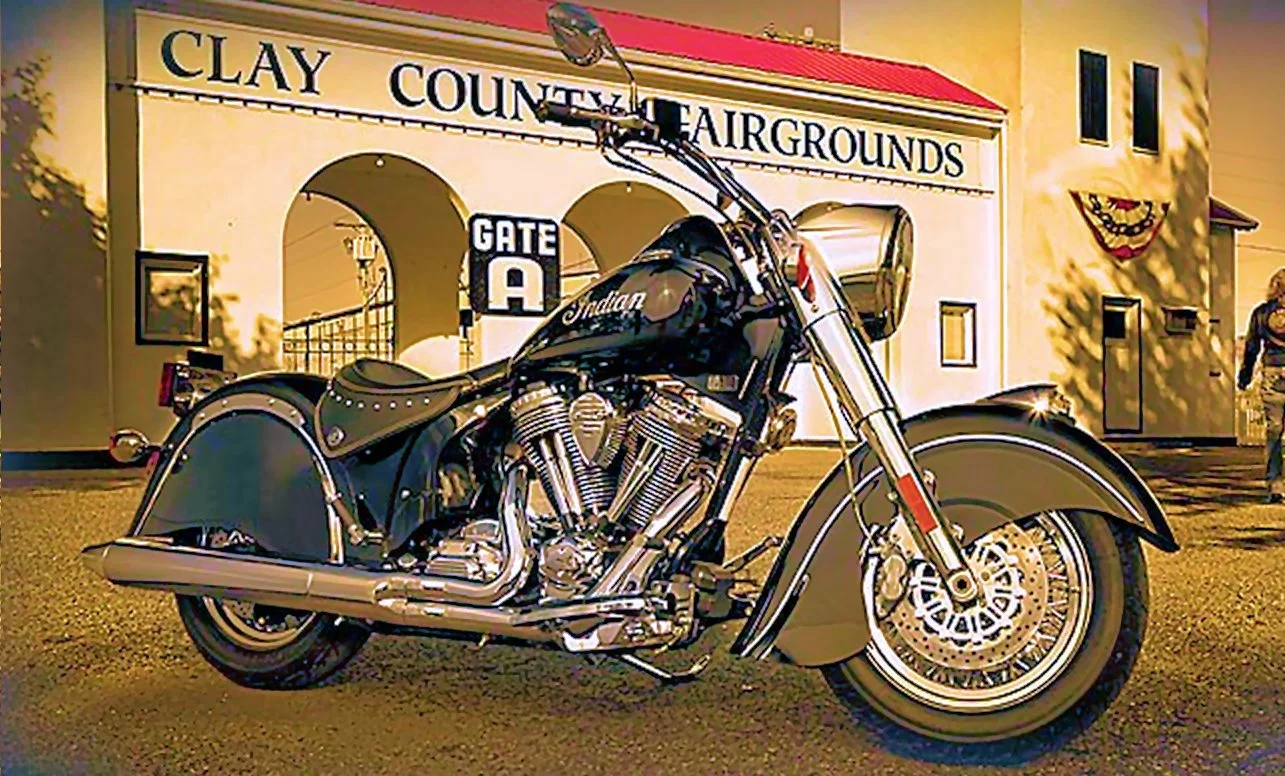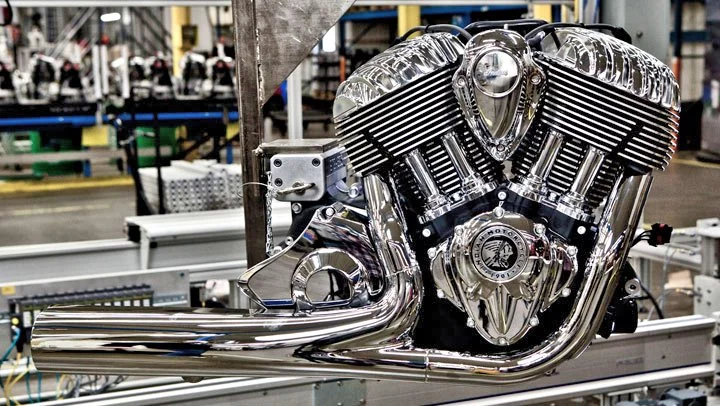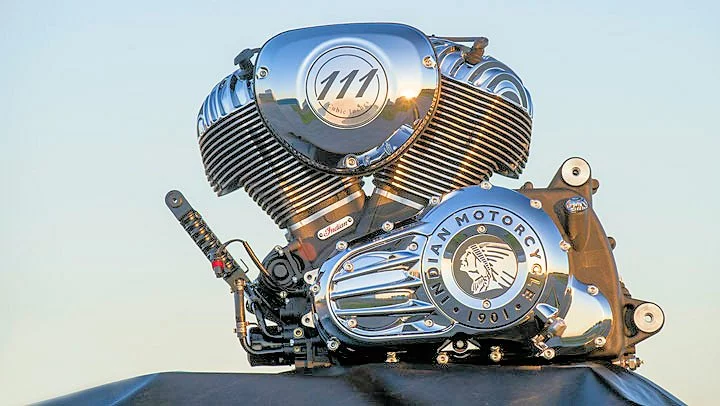Indian Motorcycles has once again risen from the dustbin of history. Purchased by Polaris Industries in 2011, the 2014 model year involves a complete redesign of the Indian motorcycle line. The most notable new feature is the new Thunder Stroke 111 V-Twin engine. A fresh design from the ground up, the design goals included keeping the classic Indian engine look while implementing a 49 degree V-Twin geometry with modern technology.
The first Indian Motorcycle was sold in 1902, which, as Indian enthusiasts enjoy pointing out, was a year before Harley-Davidson was founded. The company was bought by DuPont Motors in 1930, which then stopped making cars and concentrated its resources on Indian. The brand met with considerable success, to the point that in 1940 it sold nearly as many bikes as did H-D. In 1945 the company was taken over by the Rogers Group, which proceeded to run it into the ground with a series of poorly designed and built-light motorcycles. The original company went bankrupt in 1953.
Since that time, the brand has been owned or claimed by no fewer than nine separate companies, which have sold a variety of small imported cycles and Harley clones. Stephen Julius and Steve Heese, who had previously revived the Chris-Craft and Reva luxury boat brands, bought the Indian brand in 2004. In 2008, they began selling their Indian Chief motorcycle in various levels of accouterments.

Regarded as a huge step backward (that's a good thing!), the Kings Mountain Indian Chief is a refined bike which has been called the Bentley of motorcycles, the product of levels of manufacture and quality control that remind one of the Indian's heyday. Production was limited to small runs, though, perhaps to justify higher prices partly through scarcity. That didn't work terribly well as a business model, regardless of the sophistication of the motorcycle itself. In 2011, Polaris Industries bought the company, and transferred operations and manufacturing to Spirit Lake, Iowa.
The 2013 Indian Chief models are the last of the Kings Mountain motorcycles that will be manufactured. Polaris decided to develop a completely redesigned bike to carry on the Indian name. Due out in the latter part of this year, the as-yet unnamed 2014 Indian Motorcycle line will be equipped with the Indian Thunder Stroke 111 (TS111), newly developed beginning with a clean sheet of paper.

The Thunder Stroke 111 is a fue-injected four-stroke 49-degree V-Twin engine having a displacement of 111 cubic inches (1811 cc), that is claimed to deliver 118 ft-lb (160 Nm) of torque, which is about normal for such designs. The engine tops out at 5500 rpm, and delivers its power to the rear wheel through a six-speed overdrive transmission and a carbon fiber-reinforced belt.
The new design, which has undergone over one million miles of testing, has a forged single-pin transverse crankshaft to transfer power from the 3.89-in (101-mm) diameter pistons during their 4.45-in (113-mm) stroke. The TS111 is an overhead valve engine, with two valves per cylinder controlled by a triple camshaft driving parallel pushrods which activate hydraulic lifters. As a 49-degree V-Twin design is rather cramped near the crankshaft, the engine has mushroom cylinder outlines and multi-directional cooling fins to optimize the balance between cooling and real estate.
The engine is connected to a six-speed overdrive constant-mesh transmission. Sixth gear turns 3.37 times faster than first gear, leading to an easily controllable transmission that will allow a rider to remain within the power band of the engine under most riding conditions. The clutch is a multiple-plate wet design to provide smooth clutch action without undue slippage.

The TS111 is equipped with a valve to trigger compression release, allowing a motorcycle driven by this engine to use engine braking. The compression ratio of the engine is a rather conservative 9.5:1. Fuel is provided to the engine by an electronic sequential port fuel injection system, while air passes through an electronically controlled 2.13-in (51-mm) throttle. As the TS111 also has a helical gear balancer to offset vibration from the unbalanced 49-degree cylinders, the result should be an engine that combines power and smoothness.
The new engine is a modern incarnation of most of the positive aspects and quirks of design so characteristic of classic Indian design. We can only hope that the 2014 Indian Motorcycle follows the same path. OK – it could be less expensive as well – the CEO has said it will be "more affordable." This is one development target I don't want to see slip – I haven't owned a motorcycle in quite a while, but the new Indian might push me back over the line!
Details of the TS111 can be seen in the video below.
Source: Indian Motorcycles, Inc



















